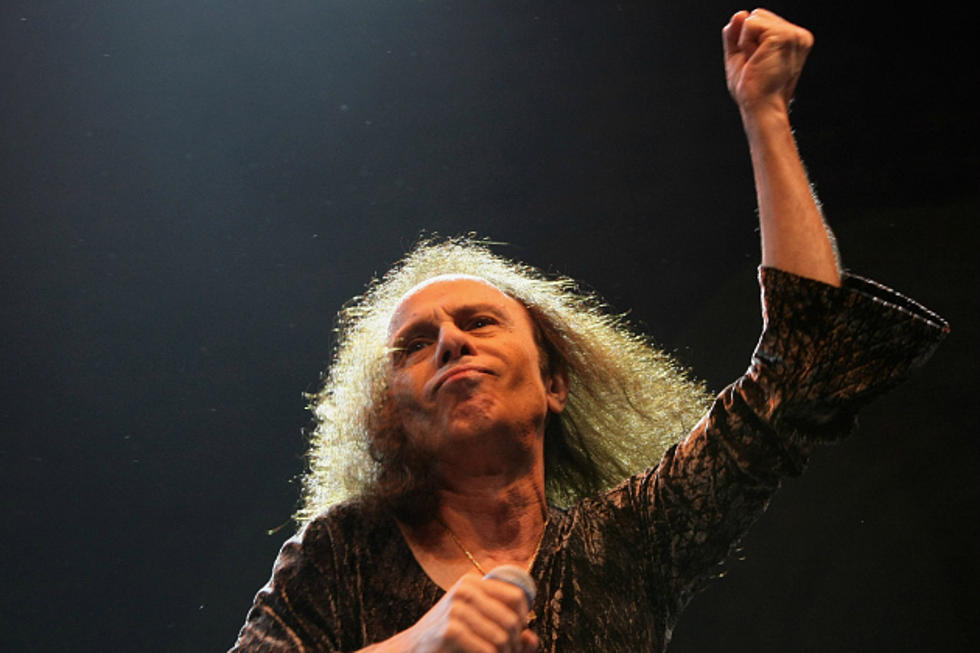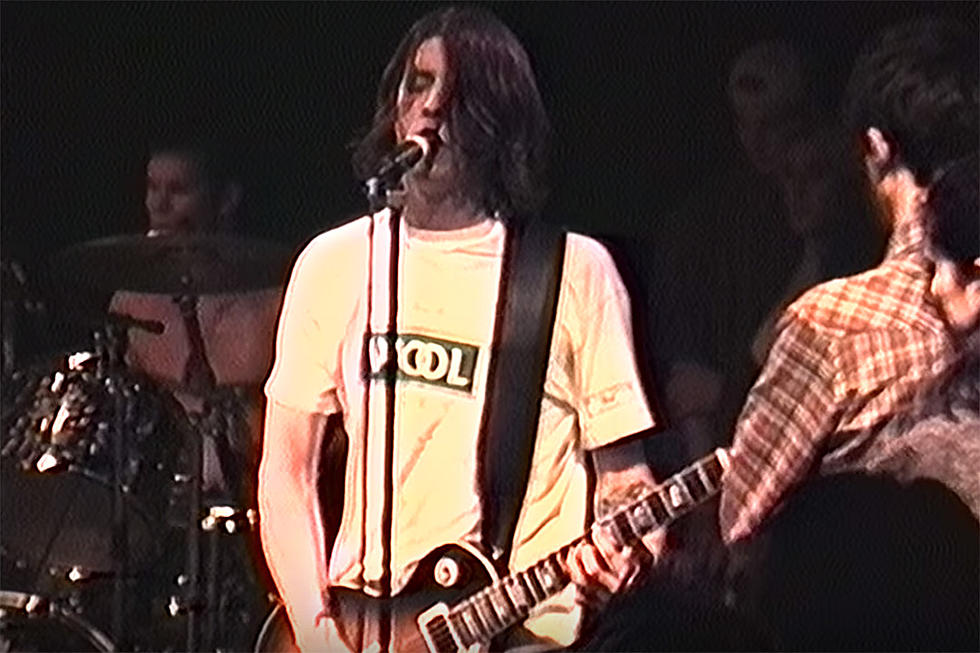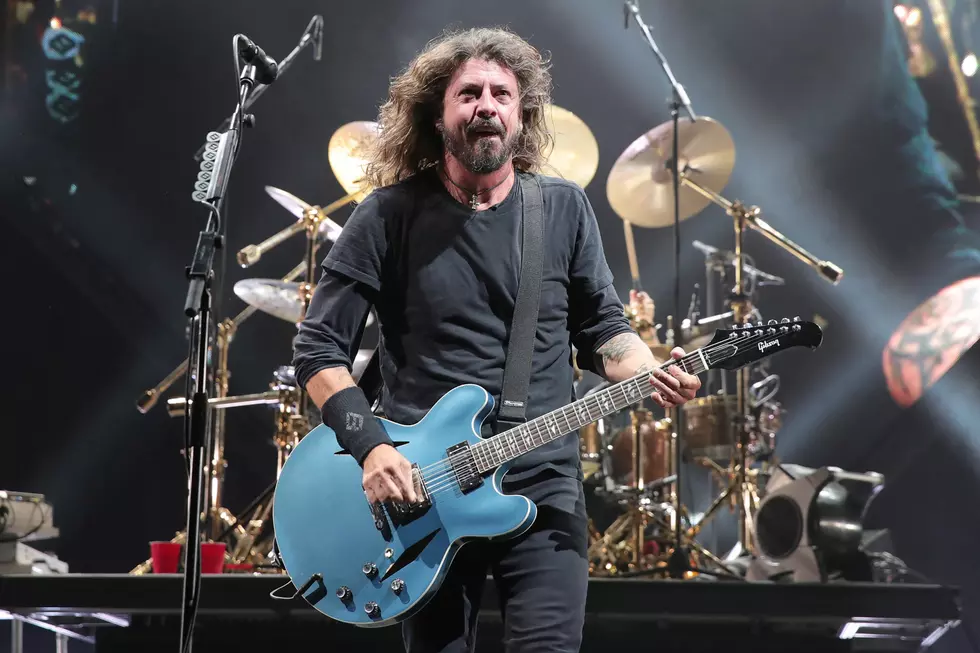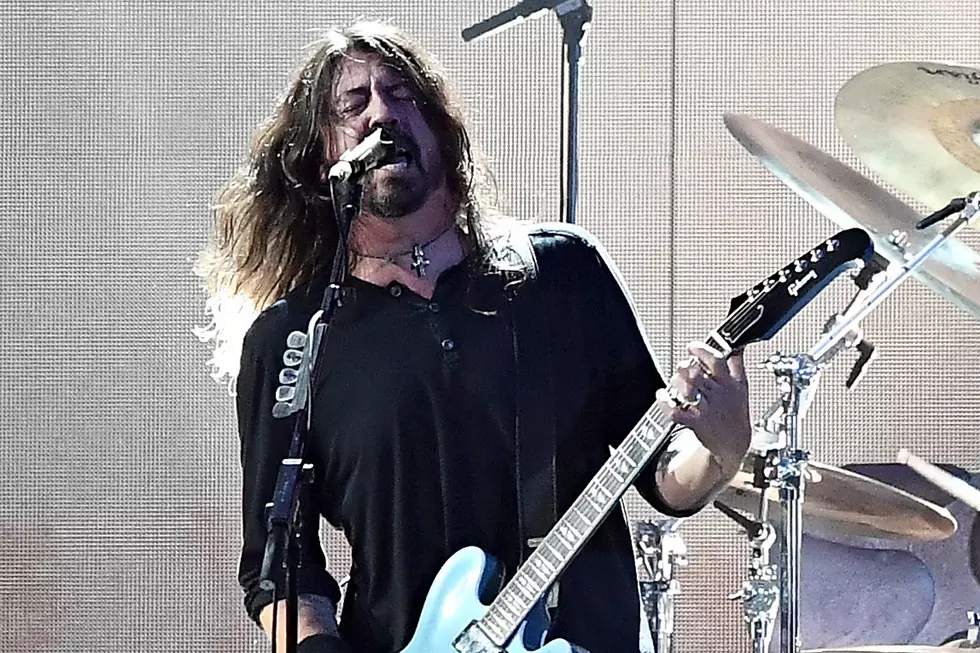
The Roots of Indie: Ronnie James Dio
As I write this, the Foo Fighters' 'Something From Nothing' is sitting on top of Billboard's Alternative Songs chart. The track was our first peek into the writing process Dave Grohl would use for 'Sonic Highways' -- visit a city, soak up some atmosphere, interview some legends, and mash all those influences into a song.
"In the end we all come from what's come before, so here I go," Grohl sings and then the band kicks into a chunky riff that's better than the rest of the song. Fast forward to the two minute mark and you'll hear what I'm talking about:
That keyboard is pure '70s Stevie Wonder, but there's something even more familiar about that sound. I racked my brain for nearly 20 seconds before it hit me: That's Dio's 'Holy Diver' riff.
I was ready for the Beatles-meets-Cheap Trick vibe in the verse -- Rick Nielsen guests on the song, after all -- but Dio? There was nothing even a little bit alternative about Ronnie James Dio, with his swords and wizards. Dio was a true rock star, the man who fronted Rainbow and Black Sabbath version 2.0 before setting out on his own with a series of Camaro-rattling solo albums.
A quick search suggests that I'm about three months late with the startling revelation that Grohl cribbed 'Holy Diver,' but that's about nine months faster than I usually pick up on things. When 'Something From Nothing' dropped back in October 2014, the head-bang-o-sphere erupted with Grohl rage. Was it a tribute, a steal, or just one of those riffs that soaks so deeply into a songwriter's DNA that he thinks he actually wrote it?
One way or another, Ronnie James Dio influenced the No. 1 alternative track in the country.
I don't know, and for purposes of this column I don't really care. All that matters is this: One way or another, Ronnie James Dio influenced the No. 1 alternative track in the country, and that means I get to write about him.
The general population didn't know who in the dragon-guarded hell Dio was prior to 1983's 'Holy Diver,' but the diminutive singer with the huge voice was already 25 years in the business by then. Ronnie Dio's career stretched nearly to the beginning of the rock era. He was still a teenager when his band, Ronnie and the Red Caps, released their first single, 'Conquest,' in 1958. Two years later he made his singing debut with the renamed Ronnie Dio and the Red Caps:
There's something poetic about the guy known for singing about demons kicking off his career with 'An Angel Is Missing.' Over the next few years he cut a handful of singles as Ronnie Dio & the Prophets, but by the end of '67 Dio's sound had morphed from '50s doo-wop/crooning to a sort of British Invasion vibe. The Electric Elves' 'Hey Look Me Over' sounds like the Who's 'Substitute' with a surf drummer which, incidentally, is also what the Who's 'Substitute' sounds like.
The Prophets became the Electric Elves, then the Elves and finally Elf. This was the lineup where Dio finally found his voice. The music may be more Faces than Sabbath, but that voice is clearly recognizable:
By 1974 Dio had been in the music business for 16 years: It was time to become an overnight success. Guitar maestro Ritchie Blackmore wanted out of Deep Purple and, impressed with the singer's voice, he decided to give Dio a shot. By the time he was done, he'd recruited several other members of Elf into his new band, Rainbow.
'Ritchie Blackmore's Rainbow,' the band's debut album, opens with full-fledged D-I-O. It's all there in 'Man on the Silver Mountain' -- the imagery, the big voice, the heavy groove. This is Dio the Artist fully matured:
Dio hung in with Blackmore for two more studio albums, and then he was called up to the heavy metal Yankees. Black Sabbath were without a front man after firing Ozzy Osbourne, and Dio was at the end of his Blackmore rope. The first Sabbath song he wrote with Tony Iommi sprung from a jam session at the guitarist's house. 'Children of the Sea' remains one of my favorite tracks from the 'Heaven and Hell' album:
Dio's first collaboration with the Sabbath camp (they'd reunite a couple more times in ensuing years) ended after follow-up album 'Mob Rules.' He took then Sabbath drummer Vinnie Appice with him and formed Dio, and that brings us back full circle to the monster riff that kicked off this rambling essay.
Dio recorded almost until his death from stomach cancer in 2010. The previous year's 'The Devil You Know,' recorded with his old Sabbath mates under the name Heaven & Hell, would be the end of the road, over 50 years after his first single dropped.
So no, I don't fault Dave Grohl for boosting a Dio lick any more than I'd moan about somebody using the Bo Diddley beat, the Hendrix chord, or the Chuck Berry lick. That's the thing about roots: We grow from them, not separate from them.
Dio was a small man who stands tall in the history of music-- not just metal, but all rock and roll. Is it any wonder so many want his cape and scepter?
More From Diffuser.fm









